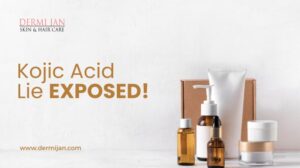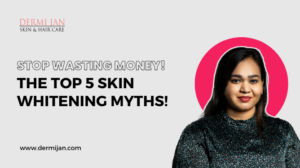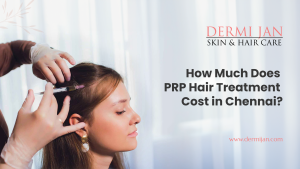

Hair regrowth for trichotillomania solutions

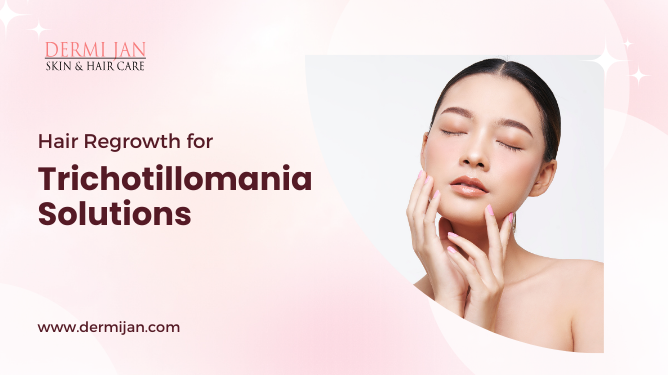
For individuals suffering from trichotillomania, the journey to hair regrowth can be a challenging one. As we delve into the world of holistic hair regrowth for trichotillomania, we aim to provide valuable information on treatments and practices that focus on not only physical recovery but also the psychological aspects of this disorder. Together, let’s explore behavioral therapy, proper nutrition, topical treatments, and lifestyle adjustments that contribute to healthier hair and emotional well-being.
Key Takeaways
- Understanding the basics of trichotillomania and its impact on hair health
- Embracing a holistic approach to hair regrowth for trichotillomania
- Nutrition and supplements that promote hair regrowth
- Topical treatments and remedies for hair regrowth
- Reducing stress and incorporating healthy hair habits
- The importance of sleep and exercise in hair regeneration
Understanding trichotillomania and its impact on hair health
Trichotillomania, an impulse control disorder, affects more than the physical appearance of individuals; it also has significant psychological aspects that can exacerbate hair-pulling behavior. To better understand the complexities of trichotillomania and develop effective hair regrowth for trichotillomania, we delve into the basics of this disorder, its effects on the scalp and hair follicles, and the psychological aspects that contribute to its severity.
The basics of trichotillomania
Classified as an impulse control disorder by the American Psychiatric Association, trichotillomania compels individuals to continuously pull out their hair, often leading to noticeable hair loss and varying degrees of baldness. While the exact cause remains unknown, genetic and environmental factors may contribute to the development of this disorder.
The effects of hair-pulling on scalp and hair follicles
Clinical studies highlight the potential damage chronic hair pulling inflicts on the scalp and hair follicles. Persistent hair-pulling can traumatize the scalp, leading to inflammation and, in some cases, permanent damage to the hair follicles. These effects make trichotillomania hair regrowth particularly challenging and emphasize the need for comprehensive treatment strategies targeting both physical and mental aspects.
Psychological aspects of trichotillomania
Trichotillomania is more than just a physical ailment; it carries significant emotional and psychological ramifications. Research papers reveal that feelings of shame, guilt, and heightened anxiety are often associated with the disorder, potentially triggering or worsening hair-pulling episodes. Addressing these psychological aspects is essential for developing an effective hair regrowth for trichotillomania plan and improving the overall well-being of those affected.
Hair regrowth for trichotillomania
As we dive into various hair regrowth tips for trichotillomania, it’s essential to recognize the importance of a multifaceted approach that includes both physical and psychological strategies. By leveraging the latest hair care research, we can identify techniques that aim to stimulate and nourish hair follicles, soothe the scalp, and prevent further hair loss.
One such technique is a gentle scalp massage—using your fingertips or soft-bristled brush can help increase blood circulation, ensuring nutrients reach the hair follicles and promote growth. This practice also alleviates stress and tension, crucial factors in the management of trichotillomania. Always be mindful of the pressure and carefully massage the scalp to avoid any further damage.
Hair restoration products, specifically designed to target areas affected by compulsive hair pulling, serve as an excellent resource for those seeking hair regrowth tips for trichotillomania. Treatments such as minoxidil are known to stimulate hair growth, while natural alternatives like essential oils offer soothing and antioxidant properties. Additionally, these products may help reduce inflammation and irritation, creating a conducive environment for hair regrowth.
Addressing triggers that exacerbate the condition is another essential factor in achieving effective hair regrowth for trichotillomania. Behavioral therapy is highly recommended, as it equips individuals with coping strategies and stress management techniques, fostering positive long-term hair growth and overall psychological well-being. By adopting these practices, individuals with trichotillomania stand a better chance of successfully regrowing their hair and maintaining a healthy scalp.
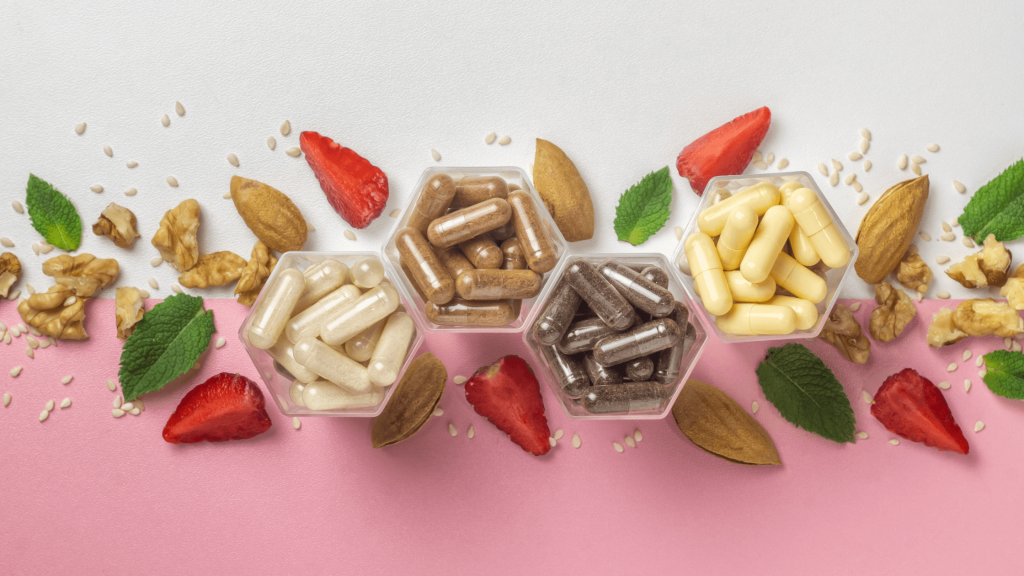
Nutrition and supplements to promote hair regrowth
It is crucial to recognize the power of a proper nutritional approach in promoting effective hair regrowth for trichotillomania. By understanding the role of vitamins, minerals, and other essential nutrients in hair health, individuals can develop a tailored supplement regimen to support scalp health and hair regeneration, thereby facilitating holistic hair regrowth for trichotillomania. In this section, we will delve into the key nutrients essential for healthy hair and discuss various vitamins and supplements that can enhance hair growth.
Key nutrients essential for healthy hair
A balanced diet plays a pivotal role in maintaining overall hair health. Consuming sufficient protein is important, as hair primarily consists of a protein called keratin. Likewise, omega-3 fatty acids contribute to a healthy scalp, whereas iron promotes hair growth by delivering oxygen to hair follicles. Antioxidants, such as vitamin C and E, protect hair from environmental damage and strengthen the hair shaft. Including a variety of foods rich in these nutrients can greatly aid in achieving effective hair regrowth for trichotillomania.
Vitamins and supplements to enhance hair growth
Various vitamins and supplements can have a significant impact on hair growth. Biotin, a B-vitamin, has long been associated with hair health and is often included in hair care products. Its deficiency can lead to hair loss, while supplemental biotin can support hair regrowth. Vitamin E is another powerful antioxidant that aids in repairing and building tissue, crucial for hair growth.
Additionally, zinc plays a vital role in hair development and maintenance, with deficiency often resulting in hair loss. By understanding the synergy between these vitamins and minerals, individuals can develop a comprehensive supplementation plan that caters to their specific needs, helping to foster holistic hair regrowth for trichotillomania.
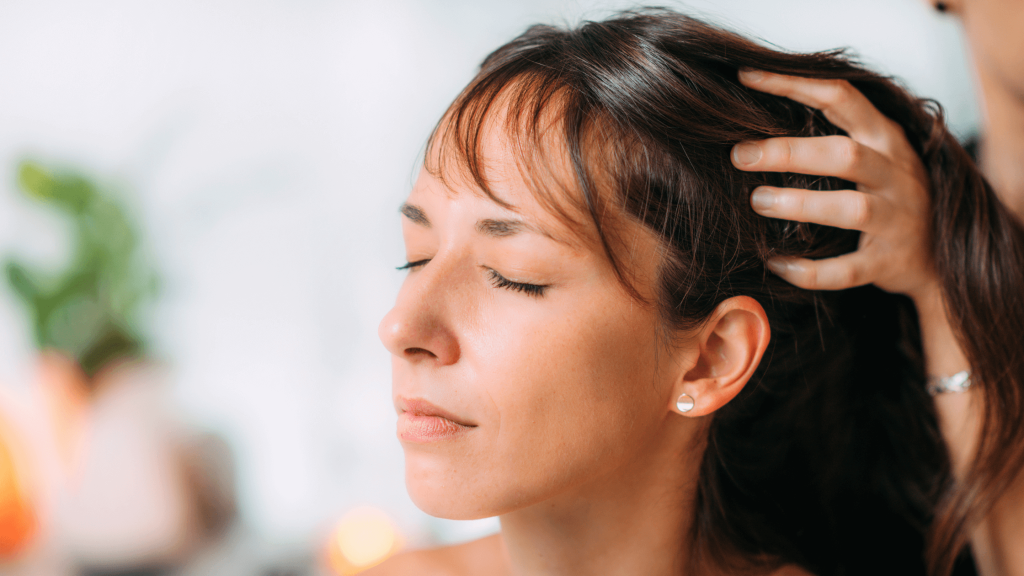
Topical treatments and remedies for hair regrowth
Uncovering various hair regrowth tips for trichotillomania is essential, considering the impact of chronic hair-pulling on affected individuals. Topical treatments promise hope in fostering hair regrowth and repairing hair loss caused by trichotillomania. We have researched and compiled options ranging from over-the-counter solutions to natural alternatives that have shown promising results in hair restoration.
The popular over-the-counter product, minoxidil, is known for promoting hair growth and reducing hair thinning. Minoxidil solution is applied directly to the scalp, where it helps to stimulate the hair follicles. With consistent application, many people report hair regrowth over time.
Natural remedies like essential oils and herbal extracts are increasingly popular and offer an alternative to conventional treatments. Lavender, rosemary, and peppermint essential oils have demonstrated the ability to aid in hair regrowth when massaged gently into the scalp. These oils contain properties that enhance blood circulation, activate dormant hair follicles, and provide nourishment to the scalp hair regrowth tips for trichotillomania.
Herbal extracts such as aloe vera, ginger, and ginseng are revered for their beneficial effects on hair and scalp health. Aloe vera, known for its soothing and anti-inflammatory properties, can contribute to a healthy scalp environment. Ginger extract increases blood flow to the hair follicles, while ginseng is believed to stimulate hair growth by energizing the hair follicles.
Consistency and patience are crucial for successful hair regrowth when implementing these treatments and remedies. By faithfully applying the chosen solution and allowing time for it to work, those struggling with trichotillomania can experience positive results. Keep in mind that a comprehensive approach, incorporating therapy, nutrition, and lifestyle changes, is necessary for effectively addressing trichotillomania and promoting robust hair regrowth.
Exploring treatments and remedies for hair regrowth
Get healthier and radiant-looking skin
at Dermijan in T. Nagar Chennai.
Lifestyle adjustments to support hair regrowth
In our quest for hair regrowth tips for trichotillomania, we recognize that lifestyle changes can greatly impact hair health. Ensuring a holistic approach to hair regrowth for trichotillomania, we explore stress reduction techniques, healthy hair habits, and the role of sleep and exercise in hair regeneration.
Stress reduction techniques beneficial for hair regrowth
Mindfulness practices and cognitive-behavioral strategies can alleviate stressors that trigger hair-pulling episodes, thus supporting hair regrowth for trichotillomania. By incorporating meditation, deep breathing exercises, and journaling into a daily routine, individuals can better manage their stress levels, which is critical in preventing further hair loss and promoting regrowth.
Healthy hair habits and how to implement them
Adopting hair care practices that maintain scalp health and foster hair growth will further improve hair regrowth efforts. We recommend swapping tight hairstyles for looser, more relaxed styles, and minimizing the use of heat-styling tools, as these practices can exacerbate hair damage and hinder regrowth. Regular gentle scalp massages can also help stimulate blood circulation and nurture hair follicles, facilitating hair regrowth for trichotillomania sufferers.
The role of sleep and exercise in hair regeneration
Ample sleep and consistent exercise contribute to the body’s regenerative processes, benefiting hair health. Prioritising quality sleep allows the body to repair and rejuvenate itself, including scalp and hair follicles. Additionally, engaging in regular exercise supports healthy blood circulation and reduces stress, both of which are essential factors in promoting hair regrowth for trichotillomania. By embracing these lifestyle adjustments, individuals can cultivate an environment that fosters hair growth and supports their journey to overcoming trichotillomania.
FAQ
Trichotillomania is an impulse control disorder characterised by the compulsive urge to pull out one’s hair, leading to hair loss and emotional distress. It not only causes scalp trauma and hair follicle damage but also has severe psychological implications that can trigger or worsen hair-pulling episodes.
Effective hair regrowth tips for trichotillomania include behavioural therapy, proper nutrition, topical treatments, and lifestyle adjustments. These strategies aim to stimulate hair growth, soothe the scalp, and address the underlying psychological factors associated with trichotillomania.
A balanced diet rich in protein, omega-3 fatty acids, iron, and antioxidants is essential for healthy hair. In addition, vitamins and supplements such as biotin, vitamin E, and zinc can support hair growth, creating a beneficial environment for holistic hair regrowth in trichotillomania.
Yes, there are several topical treatments available for trichotillomania, including over-the-counter minoxidil, essential oils, and herbal extracts. These treatments can help activate dormant hair follicles, reduce inflammation, and nurture the scalp, but consistency and patience are crucial throughout the process.
Adopting stress reduction techniques such as mindfulness practices and cognitive-behavioral strategies can alleviate triggers for hair-pulling episodes. Healthy hair habits, like avoiding tight hairstyles and minimizing heat styling tools, are also important. Ensuring adequate sleep and exercise can further facilitate overall body health and hair regeneration.

